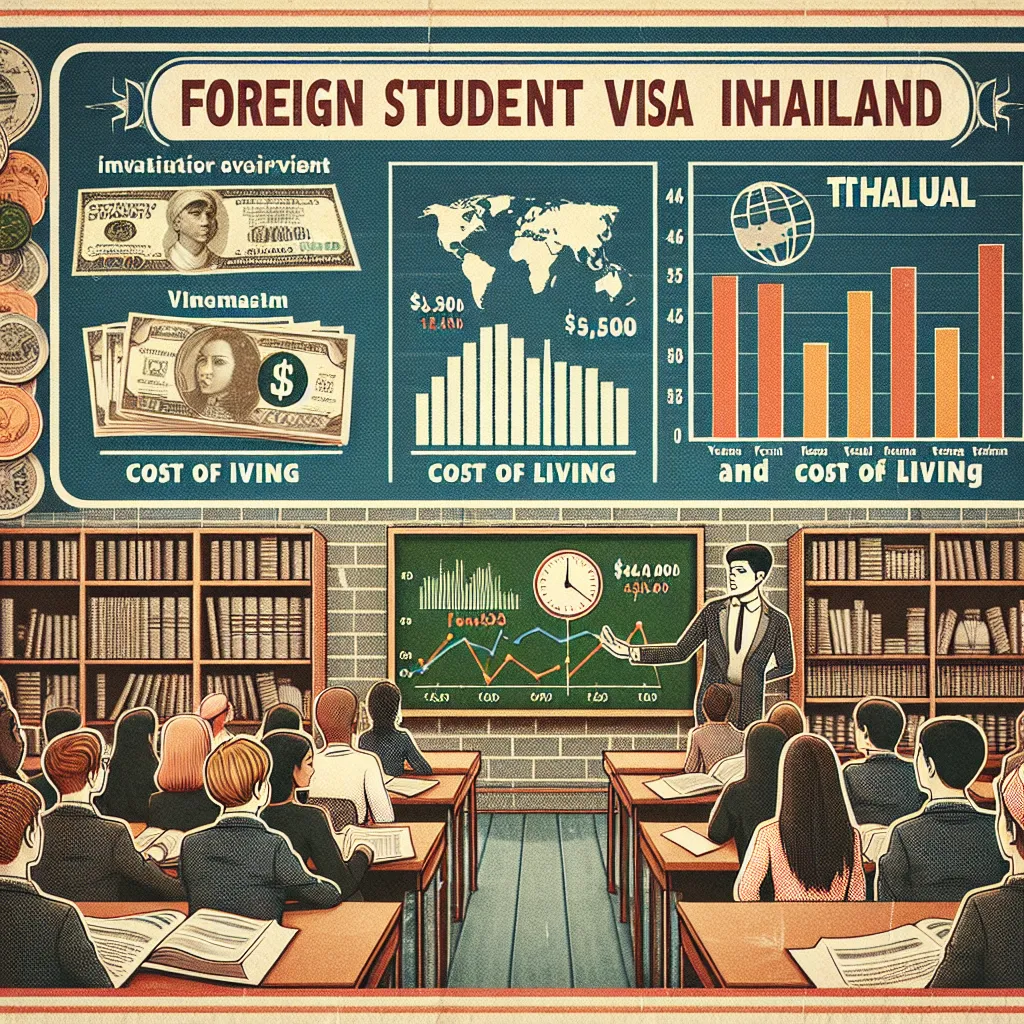How to get a student visa to Thailand: step by step to study abroad

- How to get a student visa to Thailand: step-by-step guide
- How do I get a non-immigrant ed visa to study in Thailand?
Obtaining a student visa to Thailand: detailed instructions and costs
The non-immigrant ED visa for international students is one of the most popular among the long-term visas available in the kingdom. Thailand is renowned for its wealth of study opportunities available to foreign nationals. Notably, the recipients of these visas are often adults seeking to learn English or Thai while enjoying life in this wonderful tropical country.
Jobs for international students
Thai authorities are receptive to foreigners wishing to combine study and work outside their home country, but it is important to comply with local laws. Foreigners with a non-immigrant ED visa are not allowed to work in the Thai labor market, but freelancing or remote work is completely acceptable. It is important to note that working as a tour guide or realtor is considered a violation of the law.
Specifics of visa
It should be emphasized that the non-immigrant ED visa does not allow for employment or business in the country. A non-immigrant B visa is required for professional authorization. The study visa has a peculiarity:
- one-time
- If the student leaves the country during the year of study, a re-entry permit must be obtained from the local migration office.
Visa application process
The process of applying for a student visa starts with choosing an educational institution that will be the basis for applying for a visa and its further extension. The most popular destinations are:
- Studying English and Thai at private language schools, many of which offer special “visa + tuition” courses for six months to a year.
- programs at universities that are considered more reliable due to their good reputation.
Alternative training options
One should not forget about alternative options, such as training in Thai boxing or other martial arts, for which obtaining a visa is also quite successful. In addition, among students practicing Muay Thai there are very few who plan to use the visa for other purposes, which makes such a visa more attractive.
Visas for international school students
There are also non-immigrant ED visas for students attending international schools. Education from these schools can open the door to entry to universities in Europe or the United States, and also allows one parent to obtain a non-immigrant O visa for the duration of the child's studies. This is usually called a custody visa.
After going through all the steps of the visa process, students can enjoy studying in Thailand while immersing themselves in its culture and beauty.
General information about the non-immigrant ed visa
A visa that does not grant the right to work requires the foreign applicant to prove financial solvency. This usually involves having a certain amount of money in a Thai bank account, which is usually around 25 thousand dollars.
9 October 2024
9 October 2024
29 January
29 September
Visa application process
A non-immigrant ed visa is possible from a variety of countries, but many foreigners prefer to visit Thailand first on a tourist visa or even without a visa to then choose an educational institution after a face-to-face meeting. Immigration authorities support this approach and recognize it as acceptable.
Cost of student visa
As for the cost of obtaining a student visa to Thailand, it is formed similarly to the procedure of non-immigrant b visa. The total amount can be divided into several components, the smallest of which is the visa fee at the consulate, which is 2000 baht, which corresponds to about 55 dollars. The package of required documents and tuition fees may vary considerably depending on the particular educational institution.
Breakdown of tuition costs
- The average cost of tuition is approximately 50 thousand baht (equivalent to $1,375) per year.
- About 15,000 baht (about $410) is set aside for all the necessary paperwork.
- 25,000 baht ($690) will be spent directly on tuition.
- The rest of the money will go towards visa renewals every three months and various additional expenses.
When choosing offers online, it is important to be careful as some may not include all possible costs.
Choosing an educational institution
If a student decides to apply for a visa through a university or martial arts school, it may be more expensive than applying to institutions specialized in Thai language studies. It should be noted that popular Thai boxing and mixed martial arts schools are highly competitive, which can lead to a shortage of visas for new students. However, such institutions are usually less likely to have unforeseen situations.
Important to know about visa extension
It is important to keep in mind that regardless of the type of educational institution a foreigner plans to attend (be it language courses, universities or sports institutions), it is impossible to predict exactly what additional documents may be required to extend visas. For example, language schools require renewal every three months, and renewal conditions may vary depending on the region where the institution is located.
Different provinces may have their own rules and practices that are worth emphasizing to international students planning a long-term stay in the country.

Conclusion
In conclusion, it is worth noting that obtaining a student visa in Thailand is not only an opportunity to study in one of the most attractive countries in Southeast Asia, but also a chance to immerse yourself in a unique culture, enjoy the tropical climate and expand your educational horizons. Whether you choose to study English or Thai, learn the art of Thai boxing or study at an international school, you'll have a great experience that will be useful for the future.
Preparing the necessary documents and organizing the visa application process may seem daunting, but with proper attention to detail and choosing the right institution, this journey will be less stressful for you. I highly recommend that prospective students:
- Don't rush into a decision.
- Carefully consider all available training options.
- Consult with representatives of educational institutions that can provide visa support.
In addition, it is very important to remember thatnon-compliancecan lead to unpleasant consequences. Therefore, I urge everyone who is going to use a student visa to familiarize themselves with the current requirements of the Migration Service and follow changes in legislation.
So, with the right approach, a student visa in Thailand can be the key to new opportunities in both personal and professional spheres.I wish you luckin your educational journey and don't forget to savor every moment of this amazing experience!
Comment
Popular Posts
9 October 2024
1485
9 October 2024
9940
29 September
375
Popular Offers

Subscribe to the newsletter from Hatamatata.com!
Subscribe to the newsletter from Hatamatata.com!
I agree to the processing of personal data and confidentiality rules of Hatamatata














